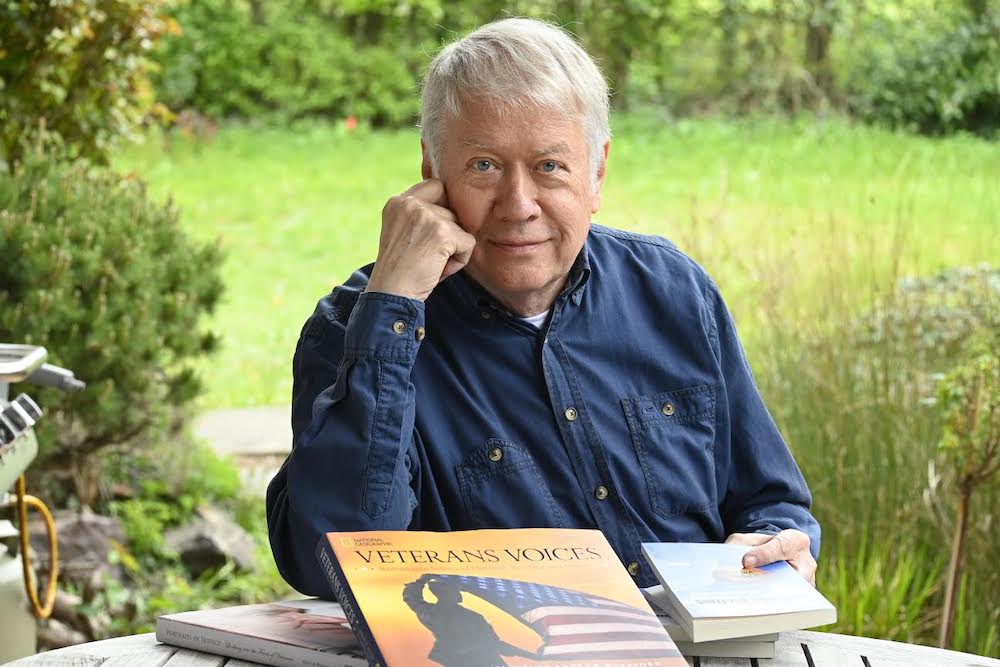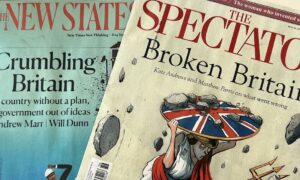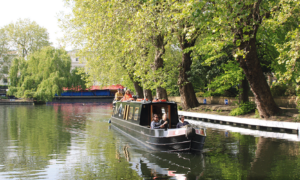(Editor’s note: This is Pt. 2 in a two-part post about how expat author Andrew Wakeford got his books and novel published. You can see Pt. 1 here.)
So you have written your book and you are ready to publish it. You have run it through a formatting tool and uploaded it to Amazon. After all that hard work, you are ready to reap the benefits by earning some revenue on book sales.
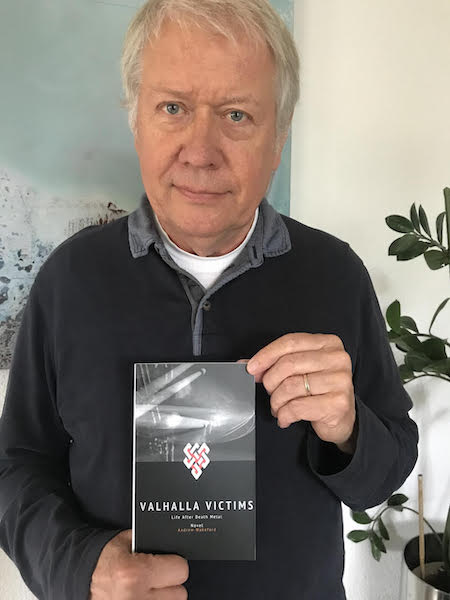
So, how come nobody seems to be buying?
Many professional writers firmly believe that the only way to mainstream success in the literary world is to find an agent who will sign you with a publisher. It sounds so enticing: The publisher foots the bill, handles edits, design and marketing through their industry connections. In return, the writer receives payment, called royalties (usually about 5 percent to 15 percent of sales).
The trick is finding an agent to deal with all of the bureaucracy.
Most big publishing houses won’t read a book if it doesn’t come through an agent. So lots of writers get stuck between low sales in self-publishing and the relative impossibility of finding an agent to represent them.
But there is a middle ground.
You can do what Andrew Wakeford did. Wakeford has tried just about all the options, independent publishers, big name brands and self-publishing.
Now, he is trying a blend: First, self-publish, then hunt for a traditional publisher in the interim. But there is a prerequisite.
You really need to network. This seems counterintuitive to writers, who spend most of their time alone in order to get the job done. Perhaps, that’s why there’s such a disconnect between writing books and getting recognition for them. Most writers simply do not have the wherewithal to make all those connections.
I cannot overstate the importance of how developing professional relationships can open doors. As Wakeford can attest.
Let’s dive into the details to illustrate how this all plays out:
• Wakeford attends an exhibition by British photographer Brian Griffin – famous for album covers for Peter Gabriel, Elvis Costello and Kate Bush – near Wakeford’s home in Saarbrücken, Germany While there, Wakeford runs into a former colleague, Tom Gundelwein. After a quick discussion about Wakeford’s recent novel, Gundelwein encourages Wakeford to create a German version and offers to help correct it.
• Wakeford takes the suggestion to heart and the German version is ready within a few months. Wakeford then calls a former pro photography colleague, Florian Brunner at Geistkirch Verlag, a small German publishing company. Brunner immediately expresses interest. “You know so many people,” Brunner tells Wakeford.
• Here is where you should stop and take notice. Wakeford networks all the time. Okay, I will admit I also know Wakeford and can attest that he is very good at several other aspects that are key to success: He is EASY to get along with; he is PROMPT, CONCISE and DEPENDABLE. Those attributes also make him a no-brainer for others
to promote.
So, if you want your work to be considered, think about developing those qualities.
Wakeford also submits work to competitions to gain prestige through literary acknowledgement. There are competitions available to self-published authors. Many are held concurrently with book fairs, like the Independent Publisher Book Awards and the New York Book Fair. Wakeford has attended the book fairs in Frankfurt, London and New York.
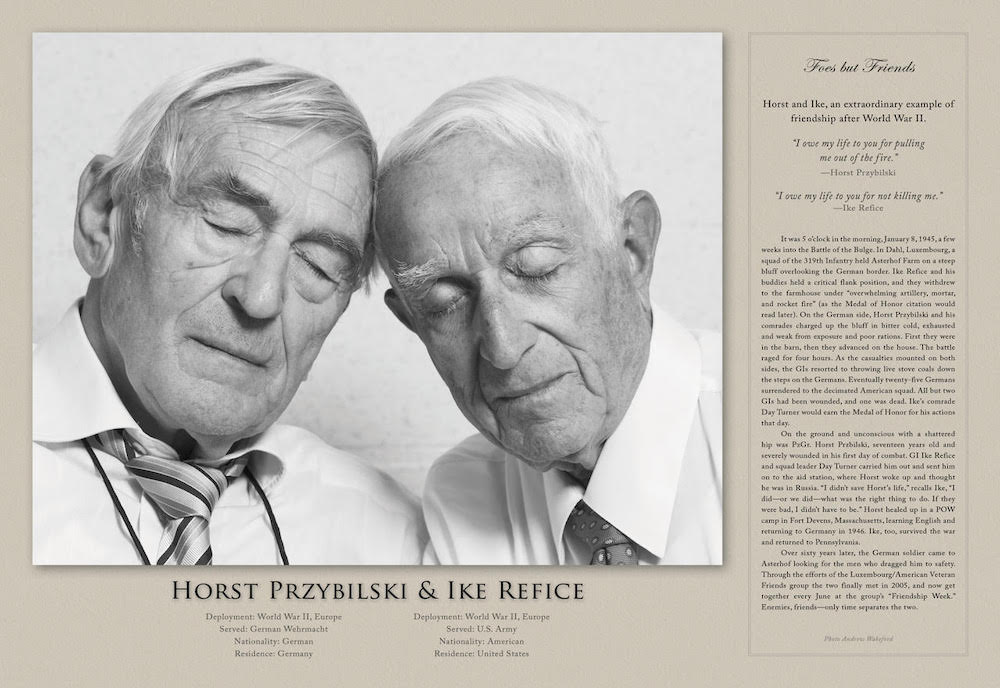
From big publishers to hybrids
Patton Publishing promoted Wakeford’s his first book, “Portraits of Service,” at the New York venue. Two visitors from National Geographic expressed interest in the book. Wakeford (and co-author Robert Miller) kept in touch with them over the next two years in order to hammer out a concept for their next book, “Veterans Voices.”
With traditional publishing, the pros do the work so you do not have to worry. But, keep in mind, you may NOT approve of their choices. For example: the publisher may wait to make sure the book enters the market at a time when they think is appropriate. They can even refuse to release it.
For example, Wakeford says that National Geographic liked the concept of his first photo book, which was done in black and white, but they needed a book in color. Wakeford and Miller created a completely new book. Miller found an automotive supply company to sponsor to cover the costs of the initial press run.
At the moment the book was printed, National Geographic was acquired in 2015 by Rupert Murdoch’s Fox network before being being acquired by the Walt Disney Co.in 2019. Reorganization of National Geographic might have contributed to sales being low. It may also be that since they did not have to pay for the initial print run, the newly restructured company had no need to recoup the initial investment. They might not have prioritized books signed before the deal or it could have been competition from other books they now preferred to push.
So, be aware that even big name companies can do poorly at promoting your work.
You have research examples about how small press companies and larger publishing houses work with clients. But you also have yet another option: hybrid publishing.
For his most recent venture, “Vahalla Victims, Life After Death Metal,” Wakeford searched the Internet and found one hybrid publishing company that made an offer. “They wanted me to pay upfront, so I turned the offer down,” he says. “I’ve approached five or six others. I will keep searching until I find the right fit.”
Inside tips on the biz
So, how do you do what Wakeford did? Here is how it works: Google “indie press” or “independent book publishers” and you will find lists of options. Check to see if they accept agented submissions or if you can submit on your own. Oftentimes unagented submissions are entered into a competition.
To get started, check publishing opportunities such as the Independent Book Publishers Association, The Center for Fiction or Council of Literary Magazines and Presses. Indy publishers have smaller budgets, so they oftentimes expect the author to be very hands-on in the marketing process. Many authors are expected to help develop their own media kits, pitch lists and event planning. They may even expect authors to maintain a regular blog and engage with writing groups, libraries and local booksellers.
Going to conventions and submitting your work to competitions is also a way to network and get
your name and work noticed.
Whew!
That sure seems like a lot of work.
Wakeford suggests trying the cheapest and easiest route first: self publishing. Many folks say it’s practically free, but according to sources such as Reedsy Blog, the editing, design and marketing can up the cost to an average of about $2,000.
The positive aspect is that you will be in charge and control of edits, cover design, formatting, releasing and marketing. Naturally, you can outsource these aspects by paying artists, editors and marketers for their services. You get to keep a greater share of the royalties and you keep the ownership rights since there is no publisher asking for reprint, film or merchandising rights.
The tricky part is marketing it effectively.
But, as Wakeford can attest, if you start with a copy of your book in hand to show folks, then just get out there and meet some people and try to get your foot in the door.

About the author:
Alice Verberne is a freelance artist and writer who holds a degree in fine arts. Alice has more than 25 years of experience writing for magazines and newspapers in Europe and the United States.
See all of Alice’s posts here.
See her posts about wine here.
See more about France on Dispatches here.
Alice Verberne is a contributing writer for Dispatches Europe. She has worked in print journalism and magazine production in the United States and Europe throughout her career. She currently resides in France where she enjoys visiting former French speaking colonies and discussing history with the locals.


